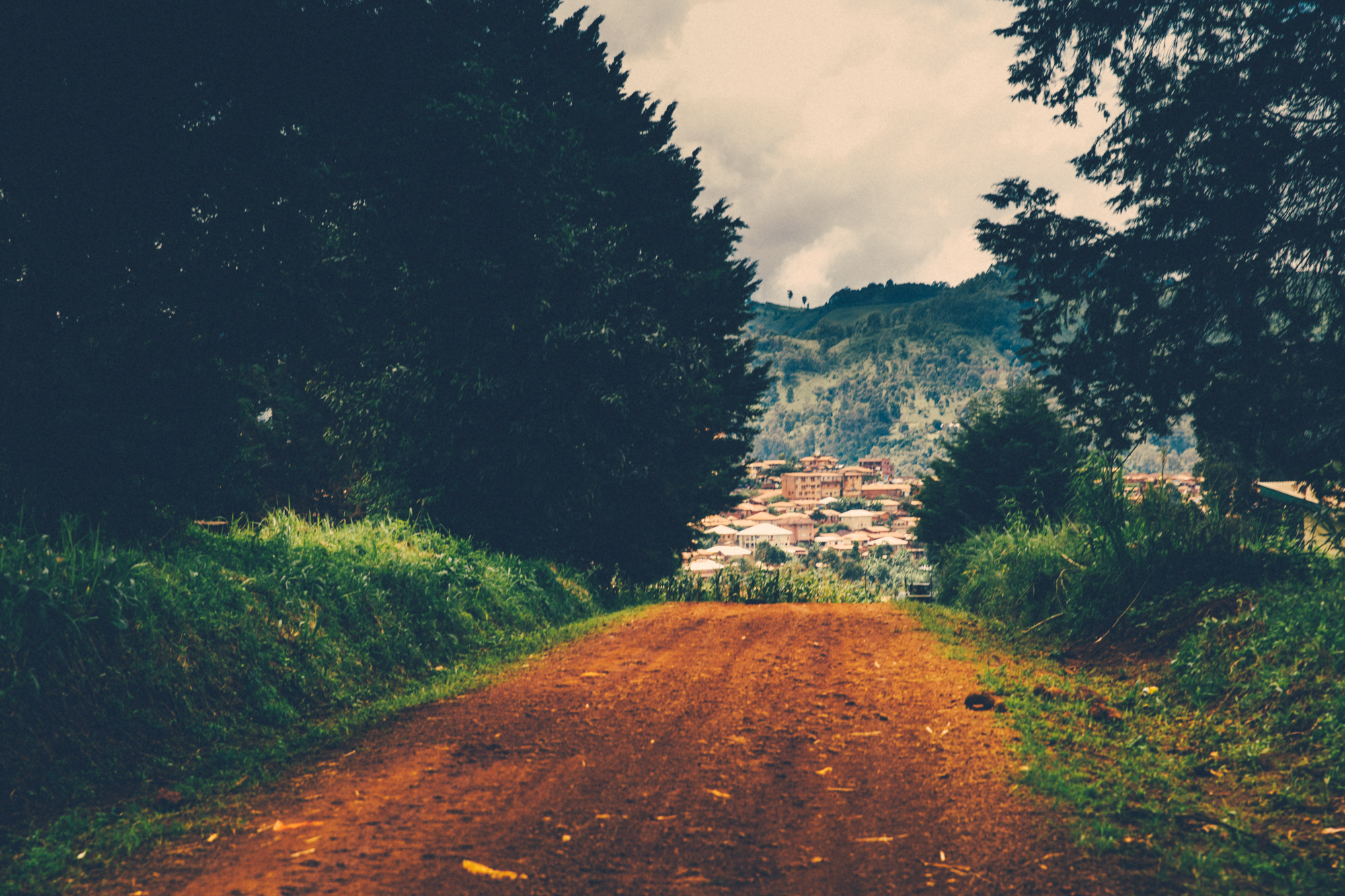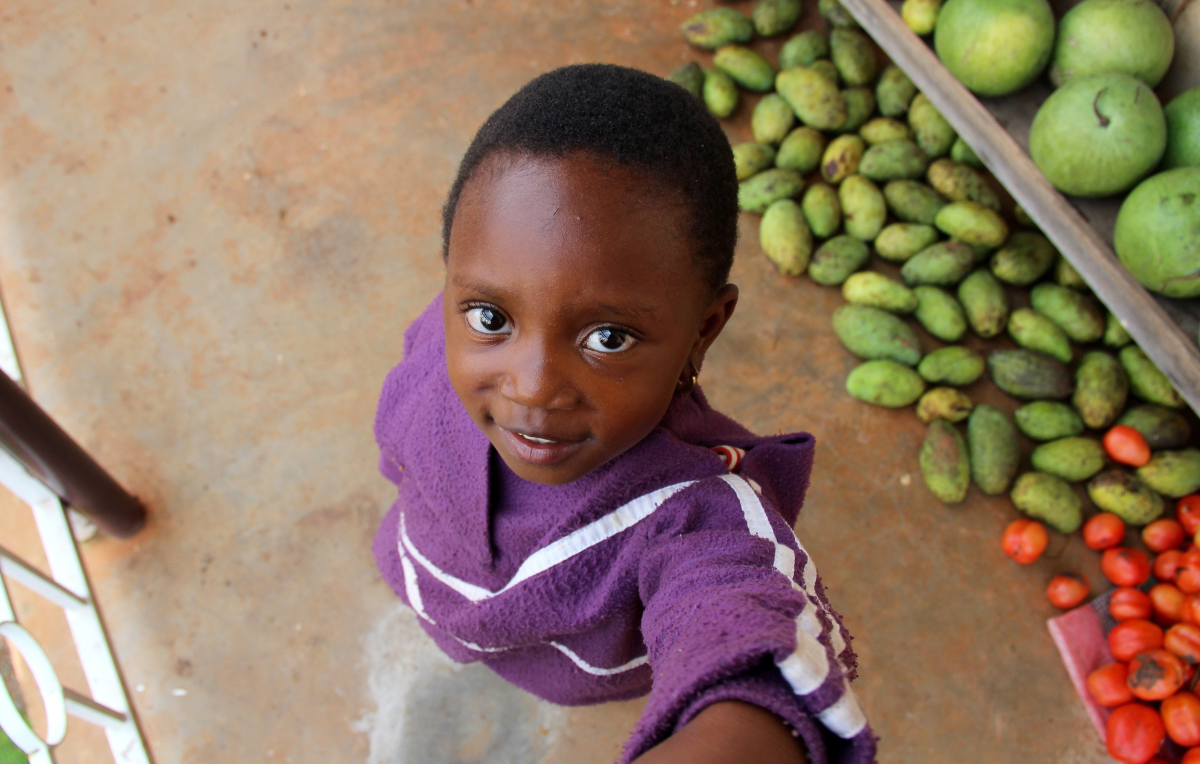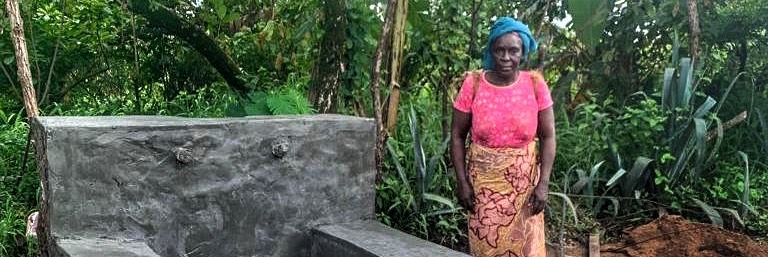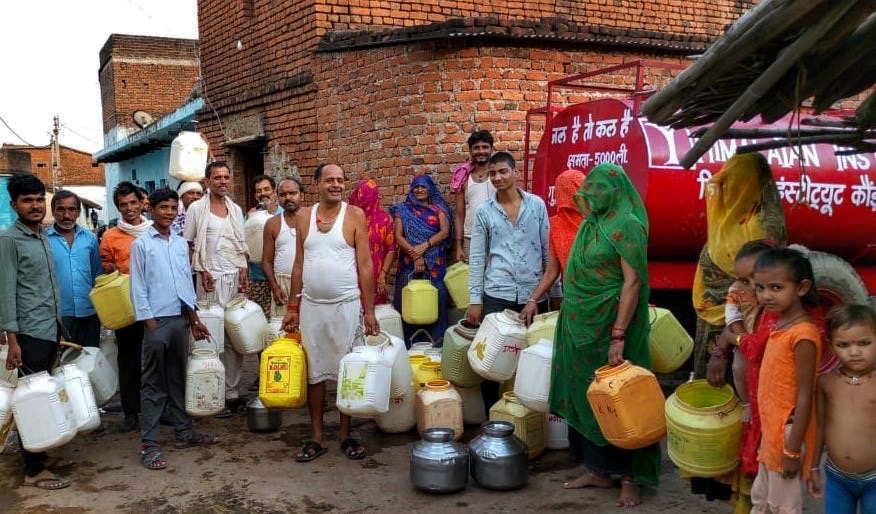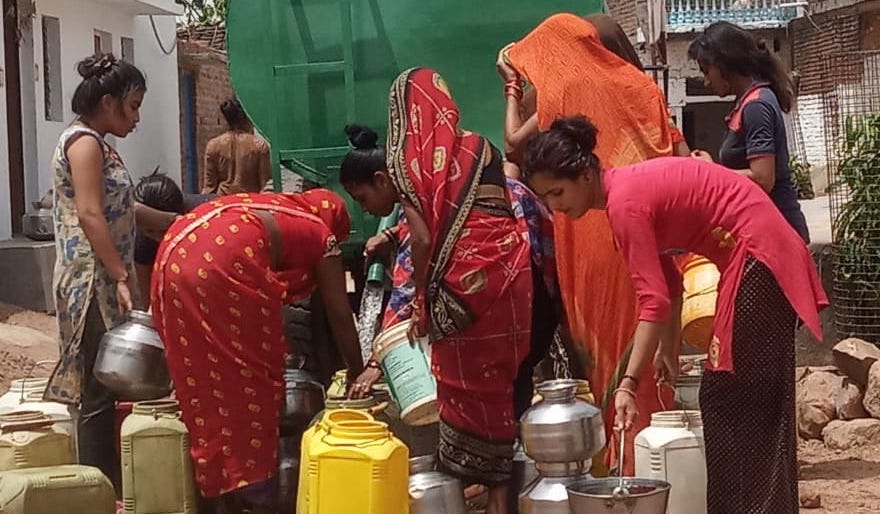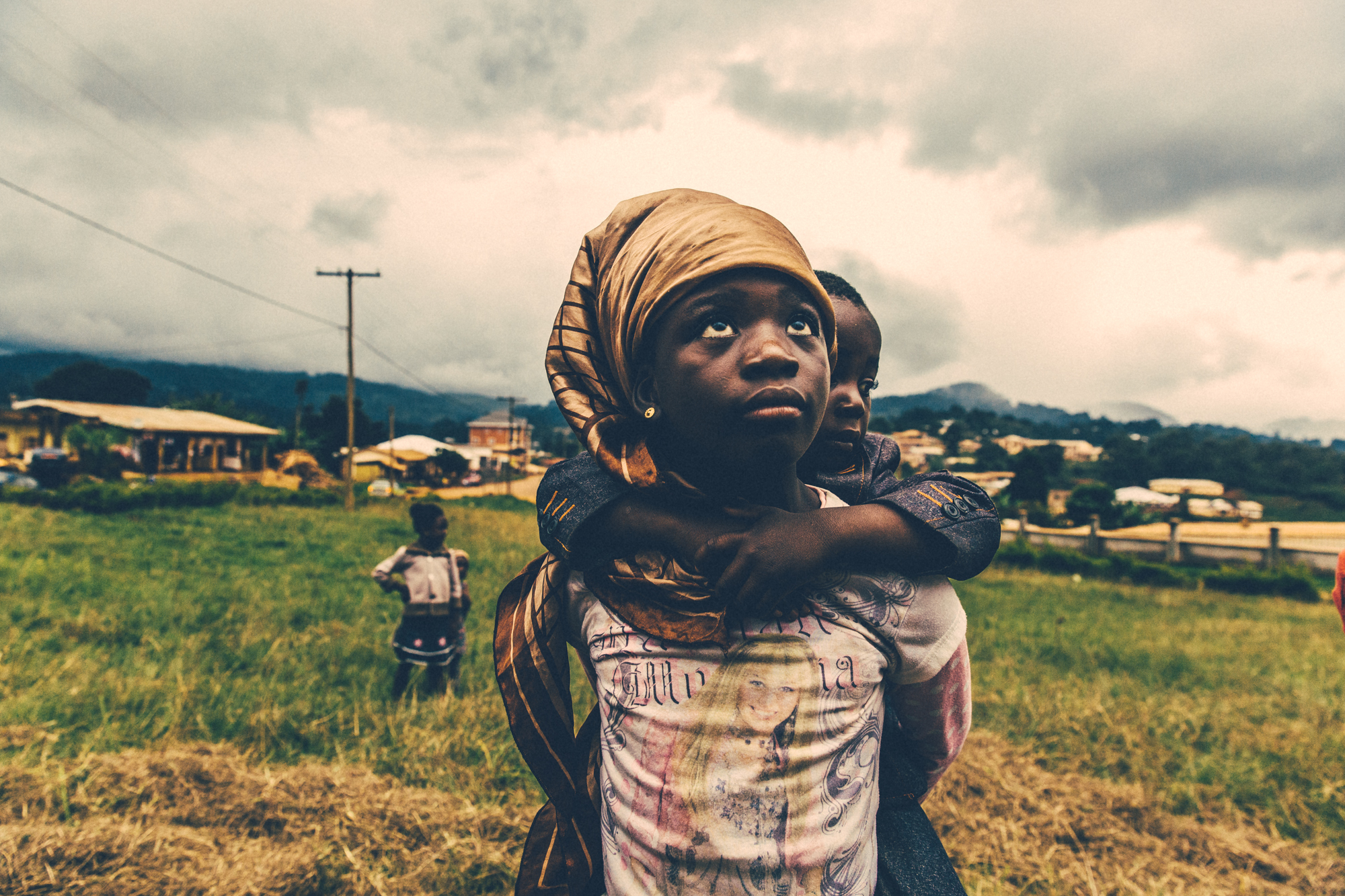
All Photos By: DJ Pierce
As COVID-19 continues to spread worldwide, our awareness turns to developing countries, who are particularly vulnerable to the destabilizing effects of this virus. In countries where the average family earns less than $1 a day and are lacking even the most basic sanitation and hygiene methods, such as soap and running water, the virus presents a unique challenge.
Due to a shortage of financial resources, poor sanitation and hygiene conditions, and no proper functioning healthcare system to rely on, these communities are faced with increased hardships, with fewer means to adhere to the public health guidelines necessary to reduce the spread of infection—washing hands frequently, maintaining social distancing, staying home and self-isolating if sick.
Many men and women are forced to work, as they rely on a daily income in order to provide basic necessities for their families, such as food and medicine. Oftentimes this means earning a meager income from selling fruits and vegetables at a local produce stand or working a small business as a local mechanic, where any income – regardless of how small – determines whether individuals will be able to provide food for their family. In these situations, staying home simply isn’t an option.
Furthermore, in densely populated regions, which is often the case in developing countries, social distancing is not always feasible. Oftentimes several family members live under one roof and extended families live within close proximity to one another within the same compound – in part due to social norms but also out of financial limitations. Where fundamental resources for health such as soap, running water, and toilets are not accessible, frequent hand washing and proper hygiene practices are not possible, leading to a significant increase in the spread of bacteria.
While education and awareness are fundamental in reducing the spread of the virus, communities in Africa are expressing the fact that social awareness alone is not enough (allAfrica). Without financial resources, proper water and sanitation infrastructure, and health systems in place, communities will not be able to begin to effectively address the devastation the disease is causing, and cases will continue to rise.
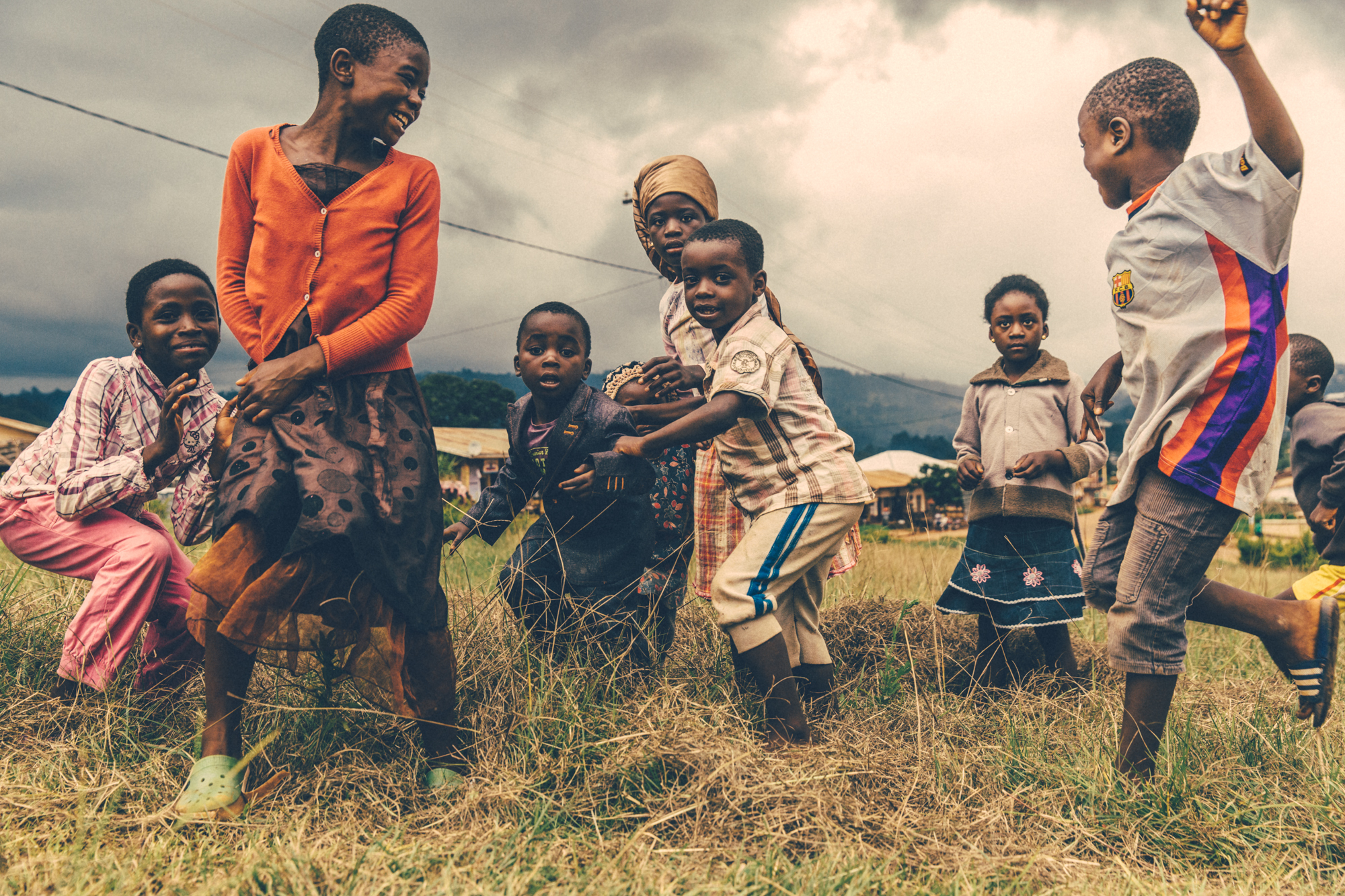
Himalayan Institute Cameroon
While our team on the ground in Cameroon has expressed similar concerns, they have conveyed their continued commitment to disseminating accurate information and guidelines to stop the spread of the virus.
The team at Himalayan Institute Cameroon takes its role seriously as a leader of public health in the community and recognizes the importance of its public health efforts now more than ever.
Our team remains committed to the local community and will continue to teach best practices for basic hygiene and sanitation remotely during these challenging times by reaching out to local influential leaders, groups, and institutions to educate them on the most up-to-date public health information and preventative measures and will continue to do so as long as this pandemic exists.
The Himalayan Institute’s humanitarian initiatives in Cameroon depend upon the love and support of our donors—the progress and development we have seen over the years could not have been possible without you, and for this, we are truly grateful. Together, we are building healthy communities throughout Cameroon.
For more information, please click here. If you would like to donate to projects like this, click here. Follow us on Facebook for frequent updates.
